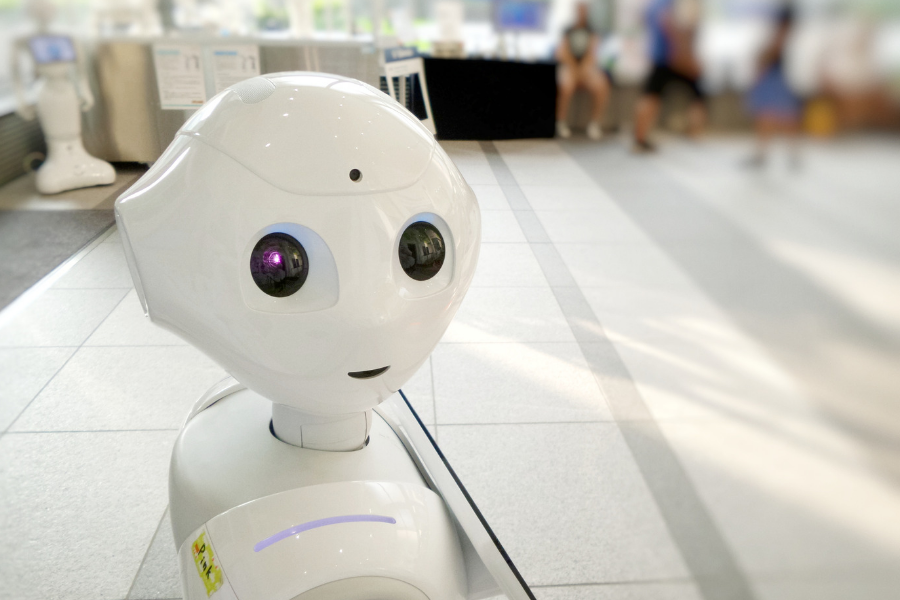In the final of a three-part series, I explore key areas for innovation in 2021
From banking to healthcare, and cyber security to marketing, artificial intelligence (AI) is increasingly being used by executives to drive efficiency and automate decisions.
At last count, there are around 500 AI startups in Australia using machine learning to solve problems or make decisions that are often predictive in their nature.
AI is nothing new. Some suggest that the heartless tin man in the Wizard of Oz is one of the earliest examples of AI but modern AI first took shape in the 1940s when the invention of the first programmable digital computer inspired scientists to consider whether an electronic brain could be a possibility. This led to the recognition of AI as an academic discipline in the 1950s.
It’s not been smooth sailing however, with AI suffering two winters. Between 1973 and 1980 funding into AI was halted in the United States and then after a resurgence in the 1980s, government and industry investment was again withdrawn in 1987.
AI is back and this time it’s here to stay.
The renaissance of AI is due to a number of factors. Firstly, it has been turbocharged by Moore’s Law, the exponential growth in our world’s computing power. This factor, combined with the access to large amounts of data that improves accuracy, and a reduction of costs have put AI front and centre for a wide range of industries.
We are also seeing more advanced machine learning techniques such as computer algorithms that improve automatically through experience. For example, Netflix uses machine learning to make viewing recommendations by tapping the streaming history and habits of its users to predict what individual users will enjoy.
It is the application of AI or “applied AI” that has exploded, rather than AI itself. Applied AI is the use of AI to enhance and extend software applications. A number of factors are driving this trend such as the increased focus on end-to-end process automation, the growing amount of data and the use of robotic process automation (RPA). This latter movement allows software bots to automate highly repetitive, routine tasks normally performed by knowledge workers. It allows tasks to be completed faster, allowing employees to perform higher-value work and fill the gaps in ways that machines are not yet able.
Furthermore, a focus on continuous learning and adaptation through feedback loops enabled by data is allowing businesses to help systems improve automatically without significant investment.
In 2021 we expect to see applied AI startups focussing on certain sectors such as cyber security and our health tech, our top two 2021 trends previously outlined, to support their evolution.
Applied AI startups in the security sector such icetana will continue to thrive. icetana provides video analytics solution to identify abnormal activities in the live and recorded video surveillance, leveraging its machine-learning algorithm to automatically learn the difference between normal movement patterns and abnormal exception events in real-time.
In the healthcare sector startups like Life Whisperer have developed an AI-based platform to improve IVF outcomes. Their system analyses embryo images and identifies features that constitute a healthy embryo, which are often indetectable to the human eye. This improves the pregnancy rates for couples wanting to have children. Other startups like HealthMatch have a promising future, matching upcoming clinical trials with participants. It has secured $18 million in new funding to continue on its growth trajectory.
2020 also saw the entrance of applied AI to new sectors. Badook is a company that helps businesses employing AI to protect their systems from bad data. It allows developers to test their data, automate when to train and deploy machine learning models, and monitor models that are in production. By validating data automatically and over time, business insights can be achieved faster while freeing data scientists to focus on more meaningful work.
The future is bright for AI. In a study across 12 developed economies, Accenture has predicted that AI has the potential to double the annual economic growth rate of GDP by 2035. Meanwhile McKinsey has estimated that AI could deliver additional economic output of around US$13 trillion by 2030 thanks to the substitution of labour by automation and increased innovation in products and services.
If 2020 has taught us one thing, it is to expect the unexpected. Whilst cyber security, health tech and applied AI are ones to watch in 2021, ultimately technology development is largely driven by founders who are seeking to solve problems. 2020 has seen more new problems, challenges and opportunities than any of us could have anticipated but our talented tech startups were poised to tackle almost anything.
- Benjamin Chong is a partner at venture capital firm Right Click Capital, investors in bold and visionary tech founders.




















Trending
Daily startup news and insights, delivered to your inbox.